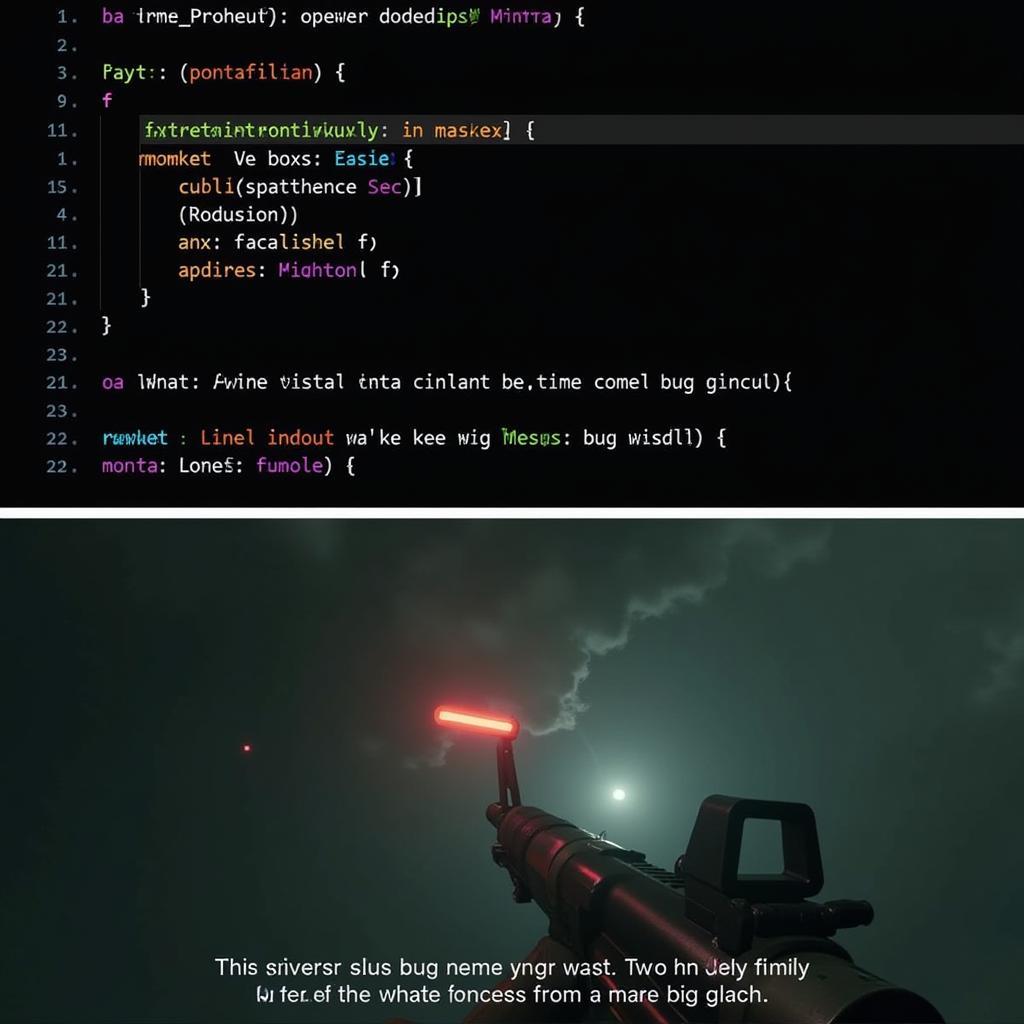The term “Bug Mask” might seem like something out of a sci-fi movie, but in the gaming world, it holds a slightly different meaning. While not as common as other gaming jargon, understanding what a bug mask represents can provide insight into the complex world of game development and the challenges developers face.
Decoding the Term “Bug Mask”
In its simplest form, a “bug mask” isn’t a physical mask worn by developers (though that would be pretty cool!). Instead, it’s a metaphorical term used to describe a situation where one bug in a game’s code inadvertently hides or conceals another bug. Imagine a leaky faucet that’s constantly dripping; you might not notice the faint sound of a creaking door because the dripping water masks it. Similarly, one bug’s effects can overshadow or distract from another bug’s presence, making the latter harder to detect.
Why Bug Masks Matter
While the concept of a bug mask might seem inconsequential at first glance, it can have significant implications for game development:
- Delayed Detection: The most obvious consequence is that the hidden bug remains undetected for a longer period. This delay can lead to more complex issues down the line as the game’s codebase grows.
- Increased Complexity: Unraveling the mystery behind a bug mask often requires developers to dig deeper into the code. This can be a time-consuming and intricate process, potentially delaying other aspects of development.
- Impact on User Experience: While some masked bugs might be minor, others can lead to game-breaking issues or affect gameplay significantly. Unforeseen problems can frustrate players and potentially damage the game’s reputation.
 Bug Masking in Code Example
Bug Masking in Code Example
How Bug Masks Happen
The occurrence of bug masks is often a result of:
- Code Complexity: Large, intricate codebases increase the likelihood of unforeseen interactions between different parts of the code, making it easier for bugs to mask each other.
- Time Constraints: In the fast-paced world of game development, deadlines often loom large. Rushed development cycles can lead to less rigorous testing, increasing the chances of bugs slipping through the cracks – and potentially masking others along the way.
- Human Error: Let’s face it, developers are human! Even with the best intentions, mistakes happen. A simple oversight or a misunderstanding of how different code sections interact can inadvertently create the perfect conditions for a bug mask.
Preventing Bug Masks
The good news is that while bug masks are a common challenge in software development, there are ways to mitigate their occurrence:
- Thorough Testing: Rigorous testing procedures, including both automated and manual testing, are crucial for identifying bugs early on, even those hidden behind others.
- Code Reviews: Having a fresh pair of eyes examine the code can help spot potential issues that the original developer might have missed.
- Version Control: Utilizing a version control system allows developers to track changes to the codebase, making it easier to identify when and where a bug might have been introduced.
 Developers Collaborating on Bug Fixing
Developers Collaborating on Bug Fixing
Unmasking the Future
As games continue to become more complex and development cycles shrink, the challenge of bug masks is likely to persist. However, by embracing best practices, fostering collaboration within development teams, and prioritizing thorough testing, the gaming industry can work towards unmasking the future and delivering smoother, more enjoyable gaming experiences for everyone.
FAQs
What are the common signs of a bug mask?
Sometimes, bug masks manifest as seemingly random glitches or unexpected behavior in the game that’s difficult to trace back to a specific cause.
Can bug masks occur in other software besides games?
Absolutely! Bug masks are a common occurrence in any software development process, not just games.
How can I report a bug that I suspect might be masked?
When reporting a bug, be as detailed as possible about the steps to reproduce it, the expected outcome, and the actual outcome. Include any information that might be relevant, even if it seems minor.
Need More Help?
For assistance with our games or to report a bug, contact our 24/7 support team:
Phone: 0902476650
Email: [email protected]
Address: 139 Đ. Võ Văn Kiệt, Hoà Long, Bà Rịa, Bà Rịa – Vũng Tàu, Việt Nam.





